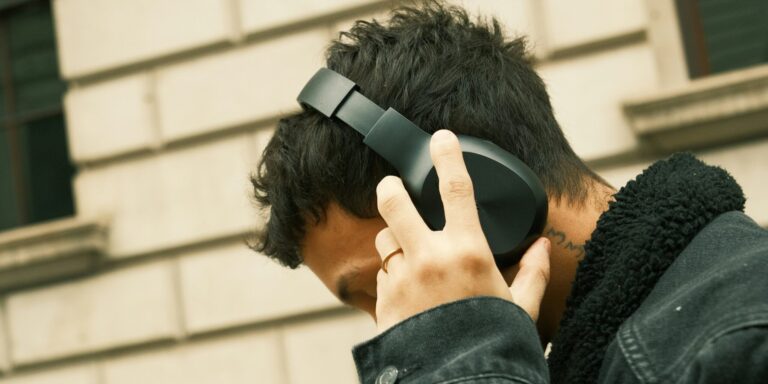March 2023 saw a sharp rise in discussions surrounding the use of artificial intelligence (AI) in the music industry. With technological advances making AI tools more accessible, the conversation has shifted to how these innovations are transforming the way music is created, produced, and consumed. Artists, critics, and technologists are all weighing in, with some heralding AI as a revolutionary tool for creativity, while others voice concerns about the potential erosion of originality and human touch.
AI and Music: A Revolutionary New Era?
AI’s role in music is not entirely new. The technology has been used for years in various facets of music production—from mastering tracks to creating sound effects and synthesizing instrumental sounds. However, recent advancements in machine learning and neural networks have made AI more sophisticated in generating original compositions. Now, AI programs are capable of crafting entire songs, from melodies and harmonies to lyrics, in a way that closely mimics human creativity. But does this spell the dawn of a new, exciting era for music, or is it the beginning of the end for authentic artistry?
The Technology Behind AI-Generated Music
Artificial intelligence algorithms, like OpenAI’s MuseNet and Google’s Magenta, are capable of learning patterns from vast databases of music across genres and styles. These tools analyze thousands of songs, understanding nuances in composition, rhythm, and structure, then use this information to produce new works. For instance, MuseNet, which was trained on a dataset of over 1,000 genres, can generate multi-instrumental tracks that could easily be mistaken for compositions by human musicians.
While AI-generated music may sound impressive, the question remains whether this technology can ever truly replicate the emotional depth and nuance that comes with human creativity. As AI continues to improve, some worry that it will begin to dominate the music industry, pushing human artists to the margins.
Creativity vs. Automation: Is AI a Threat to Originality?
Critics of AI-generated music often point to its lack of “soul” and emotional connection. Human artists draw on their personal experiences, emotions, and cultural influences to craft music that resonates with listeners. AI, however, does not have lived experiences—it cannot feel love, heartbreak, or joy. Instead, it simply analyzes data and generates output based on patterns.
One notable critique is that AI-generated music can lead to a dilution of originality. As AI systems become better at mimicking established sounds, there is a risk that music will become formulaic. Rather than innovating, AI might simply recycle what already exists, creating compositions that are unremarkable and lacking the unique signatures of human artists. In this view, the presence of AI in music production could eventually lead to a landscape where originality is overshadowed by predictability.
The Ethical Questions Surrounding AI in Music
The ethical implications of AI in music production extend beyond creativity and originality. One pressing concern is the potential for AI to displace human musicians, producers, and composers. As AI systems become more advanced and capable of producing music at scale, there is a fear that these technologies could replace human workers, especially in fields like music production and songwriting.
Already, AI-generated music is being used in advertising, video games, and film scores, where cost-efficiency is prioritized over creativity. While this can provide a valuable service for industries looking to streamline production, it also raises questions about the future role of human musicians and whether their skills will become obsolete.
Another major concern is the potential for AI to perpetuate biases. AI systems are only as good as the data they are trained on. If a machine learns from an unrepresentative dataset or one that perpetuates certain cultural biases, it could inadvertently produce music that reflects those flaws. This can limit diversity in music and potentially reinforce narrow stereotypes about what music should sound like.
AI as a Tool for Innovation: Changing the Music Production Process
Despite these concerns, there are many who believe that AI is not a replacement for human creativity but rather a tool to enhance it. Some artists are using AI to push the boundaries of music creation, incorporating machine-generated sounds into their work in ways that would not be possible through traditional means.
AI can help musicians by automating time-consuming tasks, such as mixing and mastering, allowing them to focus on the creative aspects of their work. Additionally, AI tools can serve as a collaborative partner, suggesting melodies, chord progressions, or even lyrics that an artist might not have considered. In this sense, AI becomes an assistant rather than a competitor.
The Future of AI in the Music Industry
As we look to the future, it’s clear that AI will play an increasingly significant role in the music industry. Whether it will be seen as a boon for innovation or a threat to artistic authenticity remains to be seen. However, one thing is certain: AI is not going anywhere. In fact, its influence is likely to grow stronger as technology continues to evolve.
The key to navigating this new frontier will be ensuring that AI remains a tool for human creativity rather than a replacement for it. The most successful collaborations between AI and musicians will likely be those where technology enhances the artistic process rather than diminishing it. Rather than a world where machines replace humans, we may find ourselves in an era where AI opens new doors for innovation, while human artists continue to provide the emotional depth and authenticity that machines cannot replicate.
The Bottom Line
AI is both a promise and a challenge to the future of music. While it may not replace human creativity, it certainly has the potential to change the way music is produced and consumed. By embracing the technology in a way that amplifies the work of human artists, we could be entering a golden age of music innovation. However, the industry will need to tread carefully, addressing the ethical concerns surrounding AI and ensuring that the human touch is never lost in the creative process.


